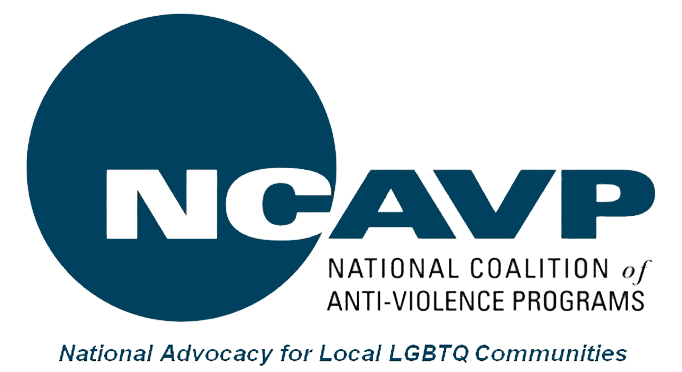
The National Coalition of Anti-Violence Programs (NCAVP), a coalition of 50 LGBTQ anti-violence organizations across the country, supports the Equality Act and urges Congress to pass H.R. 5. The Equality Act is a crucial step toward LGBTQ liberation, introduced by Representatives David Cicilline (D-RI) and Brian Fitzpatrick (R-PA), Senator Jeff Merkley (D-OR), Senator Tammy Baldwin (D-WI), and Senator Cory Booker (D-NJ).
The Equality Act of 2019 amends the Civil Rights Act of 1964 to include sex, sexual orientation, and gender identity, in addition to race, color, religion, or national origin, as protected identity factors. The bill forbids discrimination based on sex, sexual orientation, gender identity, and sex stereotypes for all public services and accommodations.
While other proposed anti-discrimination legislation address single topics such as housing, education, public accommodations, and juror protection separately, The Equality Act takes a more comprehensive approach in protecting against discrimination based on sexual orientation or gender identity. In addition, the Equality Act would protect against discrimination from retail stores, transportation, pharmacies, legal services, banks, and emergency shelters.
Despite some progress in the movement for LGBTQ equality, people who identify as LGBTQ still face interpersonal and institutional oppression that limits their socioeconomic mobility and ability to access various public services. Discrimination based on sexual orientation and gender identity is prevalent for LGBTQ people in all aspects of public life—from housing and healthcare to employment and education—and limits the success, empowerment and overall health of the LGBTQ community.
Here are a few examples of the type of discrimination that restricts the social mobility and general wellbeing of LGBTQ people, making it more challenging to pursue safe and fulfilling lives:
- Nearly 1 in 3 transgender Americans reported being denied equal treatment in a retail store, while 1 in 5 reported unequal treatment at a restaurant or a hotel.[1]
- One survey found that more than half of LGBT middle and high school students do not feel safe at school due to their sexual orientation, and over one-third feel unsafe in relation to their gender expression.[2]
- 23% of respondents experienced some form of housing discrimination in the past year, such as being evicted from their home or denied a home or apartment because of being transgender.[3]
- In 2015, 39% of non-binary people and 34% of transgender men and women reported receiving negative treatment on public transportation.[4]
- 30% of respondents who had a job in the past year reported being fired, denied a promotion, or experiencing some other form of mistreatment in the workplace related to their gender identity or expression, such as being harassed or attacked.[5]
There is an indivisible connection between discrimination and harassment of LGBTQ people in the public sphere and more severe acts of violence against and within the community. Hate violence and discrimination often serve as risk factors for interpersonal violence in LGBTQ relationships. Research shows that prolonged discrimination and prejudice against historically marginalized communities causes chronic stress, and can exacerbate situations of intimate partner violence[6]. Further, preventing discrimination in housing, employment, banks, and elsewhere enables to survivors to more safely access supportive survivors after experiencing violence.
[1] Jaime M. Grant, Lisa A. Mottet, and Justin Tanis, “Injustice at Every Turn: A Report of the National Transgender Discrimination Survey” (Washington: National Center for Transgender Equality and the National Gay and Lesbian Task Force, 2011), available at http://www.thetaskforce.org/ downloads/reports/reports/ntds_full.pdf.
[2] Joseph G. Kosciw. “The 2013 National School Climate Survey” (Washington: GLSEN, 2014), available at http://glsen.org/nscs
[3] James, S. E., Herman, J. L., Rankin, S., Keisling, M., Mottet, L., & Anafi, M. (2016). The Report of the 2015 U.S. Transgender Survey. Washington, DC: National Center for Transgender Equality.
[4] See above.
[5] See above.
[6] Barrett, B. (March 2015). “Domestic Violence in the LGBT Community.” Encyclopedia of Social Work.
